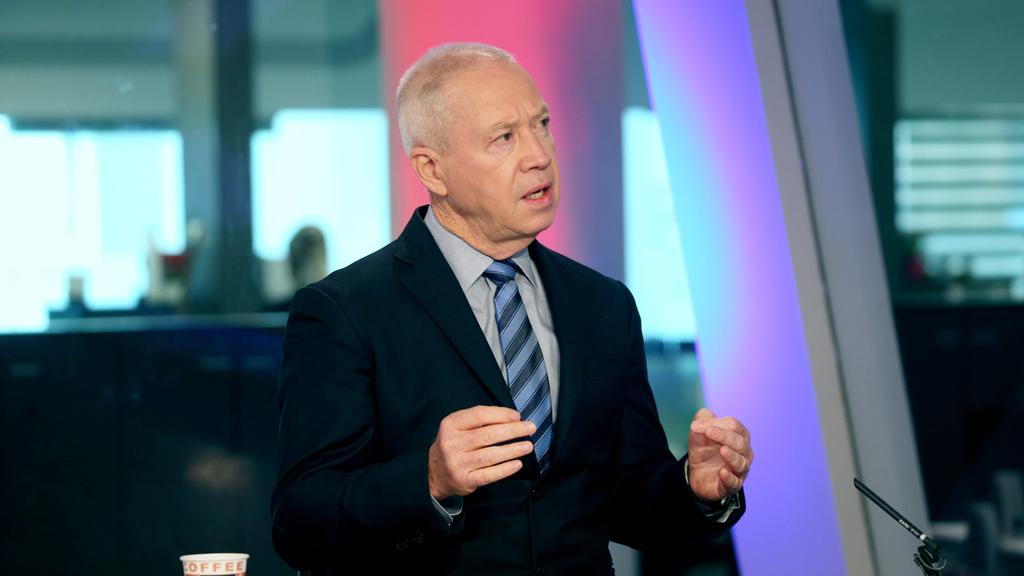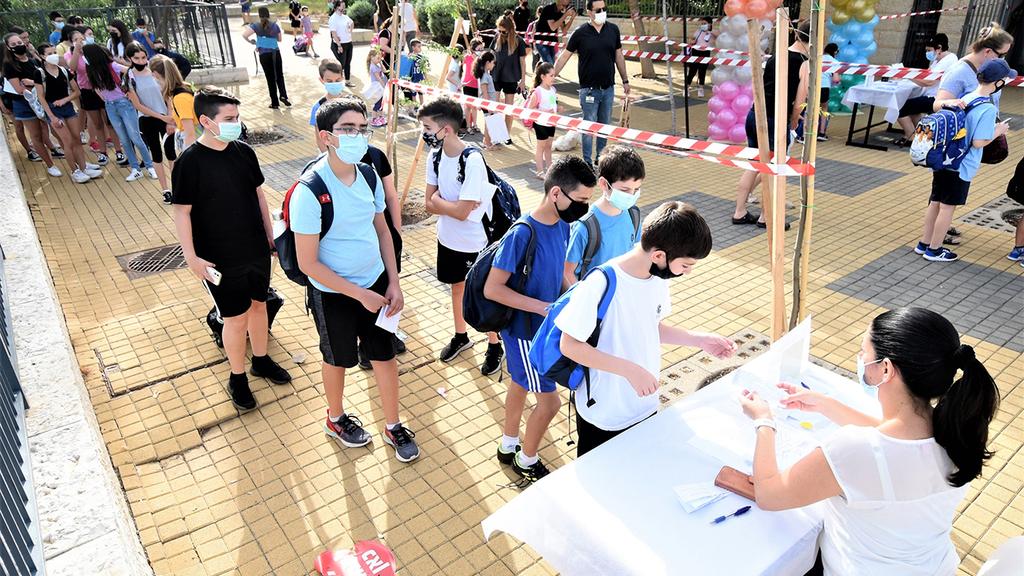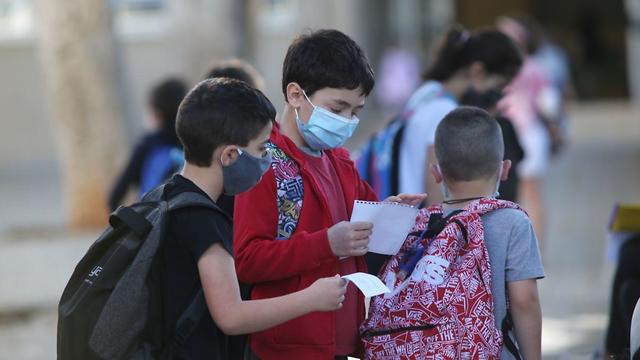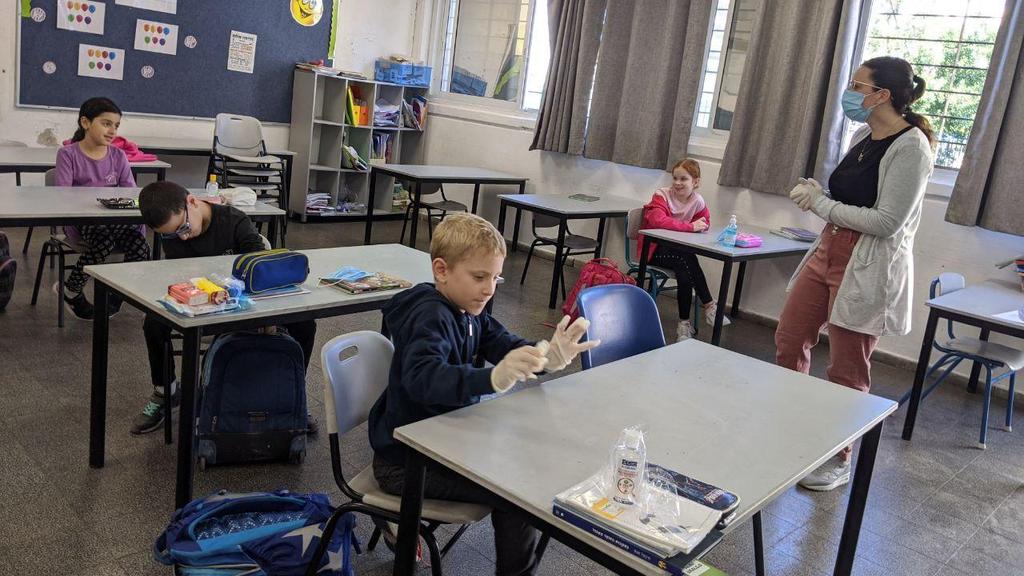Getting your Trinity Audio player ready...
The Education Ministry on Wednesday announced it will open the next school year as planned on September 1 despite the coronavirus resurgence, but added it has prepared three potential plans of actions, depending on the severity of the outbreak.
The ministry said the three scenarios will depend on the rate of infection during the coming months of fall, with the specifics of the outline subject to change by local municipalities and individual schools.
The plan of action for the worst-case scenario, in which only preschoolers and students from up to fourth grade will attends in-class studies with the rest studying remotely, would cost the taxpayer around NIS 2 billion, with the subsequent maintenance of NIS 1 billion a month.
The three courses of action proposed by the ministry include:
1. According to the first scenario, the school year will open as usual. Middle schools and high schools will combine in-class studies with remote learning, while elementary and kindergarten students will continue with the existing framework, with added health regulations.
2. According to the second scenario, students from fifth up to twelfth grade will study remotely, students from first up to fourth grade will be divided into small, spacious groups in schools, while the teaching staff will be bolstered accordingly. Preschool students will study as they do now with necessary health measures taken.
3. The outline of the third scenario is similar to the second, with the exception of kindergartners being divided into small groups. The Education Ministry and local authorities would also adopt middle and high schools as additional learning spaces for preschoolers. Manpower at kindergartens will be staffed accordingly.
In the event the third outline is implemented, the ministry is preparing to recruit 20,000 assistants and kindergarten teachers, in addition to the existing 20,000 assistants and teachers.
"Hopefully we won't get to that, but we are preparing," said Galant. " We do not want to implement the third outline. I hope we can curb the disease and keep the current curriculum. This will enable the Israeli economy to continue to go on."
The chairman of the Federation of Local Authorities in Israel and mayor of Modi'in-Maccabim-Reut, Haim Bibas, agreed there is a need to reopen the school year as planned but said the adjustments will require an addition NIS 4 billion added to the budget.
Hadar Menachem, CEO of the Ahinoam Association for the promotion of equality, said the proposed scenarios are expected to affect hundreds of thousands of students from low-income families, who do not have access to computers at home.
"We welcome the fact that the Education Ministry is taking responsibility and introducing a long-term plan with the coronavirus restrictions in mind," said Menachem. "But it's absolutely outrageous that none of the three plans presented by the minister address the fact that 40% of Israeli children have no access to computers.
"While private non-profit groups and lots of good-natured Israelis do their best to provide computers to the disadvantaged students, it is inconceivable that the state has not even discussed the issue, despite repeated inquiries from us," added Menachem.





